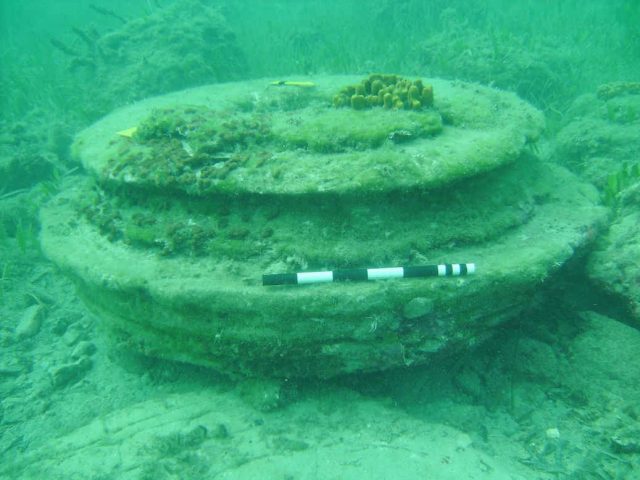MI weekly selection #184
MI weekly selection #184

Unusual underwater structures are geological, not ancient city
Uniquely shaped structures found underwater near the Greek island of Zakynthos are naturally occurring geological forms and not the ruins of an ancient city lost to the sea. The circular structures reminiscent of columns, floors and courtyards likely formed about 5 million years ago during the Pliocene epoch, researchers say. “The disk and doughnut morphology … is typical of mineralization at hydrocarbon seeps — seen both in modern seafloor and paleo settings,” said Julian Andrews, lead author of the study.
Universe expanding quicker than thought
The expansion of the universe is proceeding more quickly than previously predicted. The universe is expanding about 5% to 9% more swiftly than previously thought. This surprising finding may be an important clue to understanding those mysterious parts of the universe that make up 95% of everything and don’t emit light, such as dark energy or dark matter.
The synthetic human genome project unveiled
Plans for developing synthetic human genomes have been outlined in Science following a secretive meeting of 130 researchers, business leaders and others at Harvard University last month. Proponents of the project say they are looking at economical ways to produce synthetic genomes to be used to create organs for transplants and to help develop new therapies.
Dogs may have originated in both Asia and Europe
Dogs may have originated in both Europe and Asia. Researchers studied the DNA of 60 ancient dogs, including the genome of a canine that lived 4,800 years ago, as well as other DNA evidence.
TSPAN2 protein may lead to treatments for type 2 diabetes
South Korean researchers discovered that TSPAN2, a protein found in the pancreas, regulates the death of insulin-producing beta cells and may help in the development of new therapeutic agents for type 2 diabetes. The findings were based on an evaluation of the gene expression patterns found in human pancreatic beta cells grown by scientists.